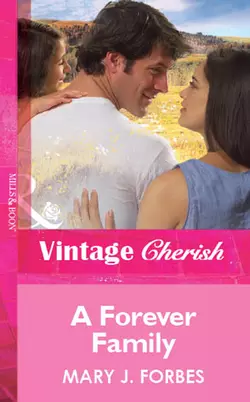A Forever Family

Mary Forbes
Тип: электронная книга
Жанр: Современные любовные романы
Язык: на английском языке
Стоимость: 458.46 ₽
Статус: В продаже
Издательство: HarperCollins
Дата публикации: 16.04.2024
Отзывы: Пока нет Добавить отзыв
О книге: SAVE THE LAST DANCE FOR ME…Meeting handsome Dr. Michael Rowan and his adorable niece was like a one-two punch to Shanna McKay′s heart. But while six-year-old Jenni instantly bonded with Shanna, the sexy single dad seemed determined to steer clear of his newest employee.This slight, lovely woman could really lift a five-gallon bucket of oats and gentle horses? And what about the delirious effect she was having on him? Like Michael, Shanna harbored a secret sorrow. But she was willing to see where their slow dance of desire led. Could he go the distance, taking a chance on a woman who could heal them both and, together, create the kind of family they′d always dreamed of?